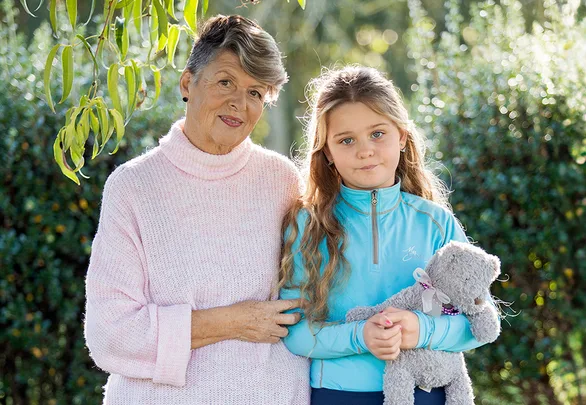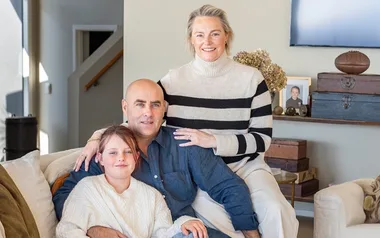In mid-May this year, beauty business owner Emma Eyles was a horse-riding, party-loving solo mum on a mission to sort her ongoing gut and back pain. By the end of the month, she was having palliative care at a hospice in Christchurch, terminally ill and preparing to die.
After eight months of going back and forth to doctors with chronic pain, Emma called herself an ambulance and was taken to Christchurch Hospital, where she was finally given a colonoscopy. It found stage four bowel cancer that had spread to her liver and was incurable. Eight days after her diagnosis, Emma passed away aged 41, with her parents beside her and daughter Monroe, then nine, laying across her stomach.
“Emma was brushed off so many times and told her symptoms were from irritable bowel syndrome, a gastro bug, gallstones or early menopause,” says her mother Laschelle Walker, 65, whose daughter had multiple blood tests that came back with results in the normal range.

Emma was a keen equestrienne.
“Once, she took herself to A&E and sat in absolute pain for eight hours. They said because she’d had gastro, there was nothing they could do and to go home. Emma’s pain was excruciating for two months prior to her passing.”
Emma’s symptoms – bloating, and stomach and back pain – started when she was around 37. A few weeks before her death, a doctor booked Emma for an ultrasound to check for gallstones. The radiologist couldn’t find any but said her liver was very swollen.
Still, the mum-of-one went undiagnosed with bowel cancer, one of the most common causes of cancer death in New Zealand.
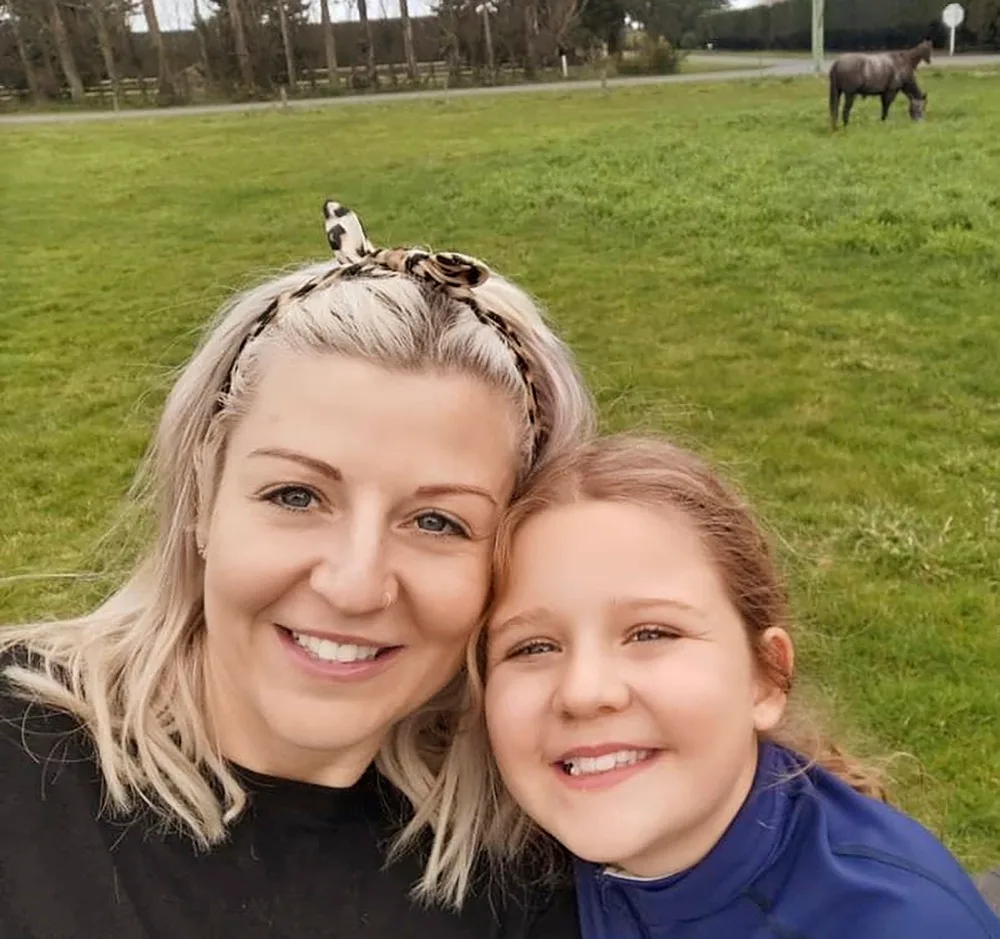
The doting mum was holding her daughter when she passed.
“When she got to hospital on Saturday 20 May, I flew down and Emma told me it was where she should’ve been all along,” recalls Laschelle, who lives in Ahipara, Northland, with Emma’s dad Kevin, 72. “She had a colonoscopy on the Monday, which showed her markers were extremely high. That same day, she was given her diagnosis. There was no anger from Emma – it was like she was resigned to it being something really bad.”
Emma’s cancer was too advanced for chemotherapy and her liver, which had been causing the pain, was taking the brunt of it. The family learnt she had just weeks or days to live and Emma went into hospice, where she passed away three days later on 28 May.
“When Emma had to tell Monroe, who was turning 10 in just over a month, she said straight up, ‘Mummy’s dying’, and that doctors couldn’t do anything because it was too late, then they just cuddled,” shares Laschelle, a former nurse, and health and disability advocate.
“Emma chose to go while we were there and I felt quite privileged. I bought her into this world and I saw her out”.
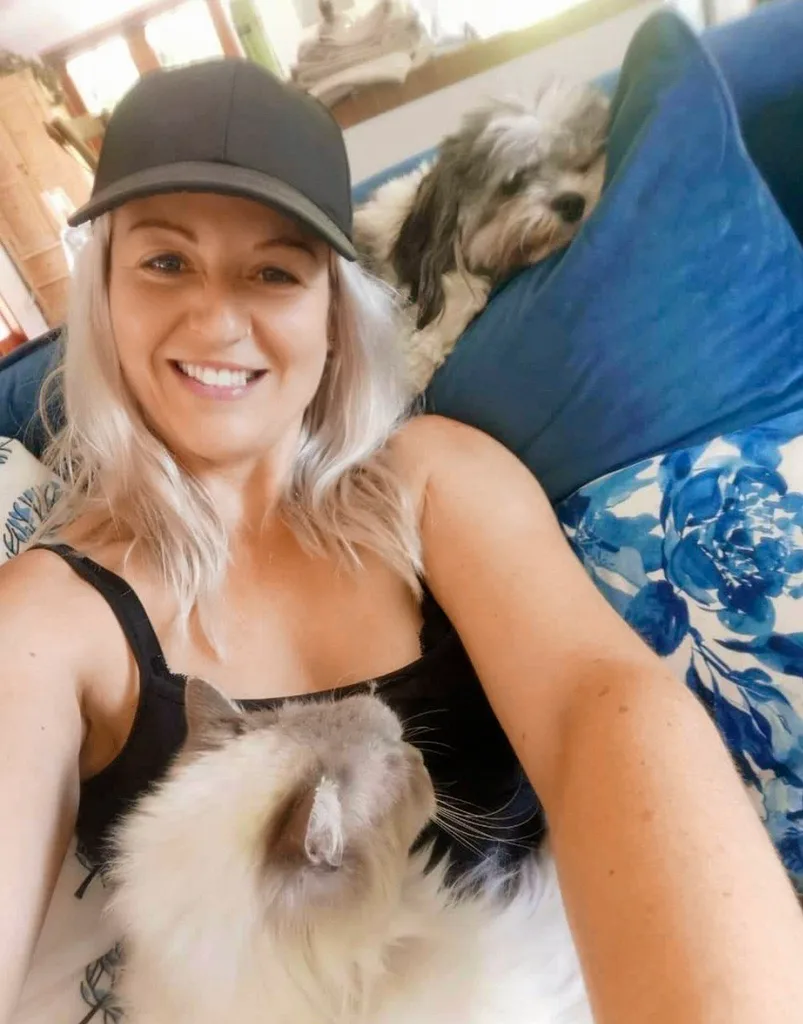
‘It seems bizarre the cancer was lurking there the whole time’
At the request of her late daughter, Laschelle has been spreading the word about the need for New Zealand’s medical profession to lower the age for free bowel screening kits from 60 to 30. She’s also writing a letter of complaint to the Medical Council in hope something can be done for future patients.
“A bowel screening kit could’ve saved Emma’s life,” she says. “The testing would’ve picked up the cancer because the primary site for it was her bowel. It’s not invasive like a colonoscopy and it’s far more cost-effective. There are too many young people being misdiagnosed because they don’t meet the criteria. Changing the criteria needs to be discussed urgently.”
Monroe is now being raised in Ahipara by her grandma and poppa, who has a special bond with the primary schooler since she was born the day his father died. Her pony Alex has arrived from Christchurch and she’s started a new school.
“We’re trying to keep things as normal as possible for Mo,” says Laschelle. “She loves it here and it has been her second home anyway because she always came for school holidays with her cousins. But this time she won’t go home.”
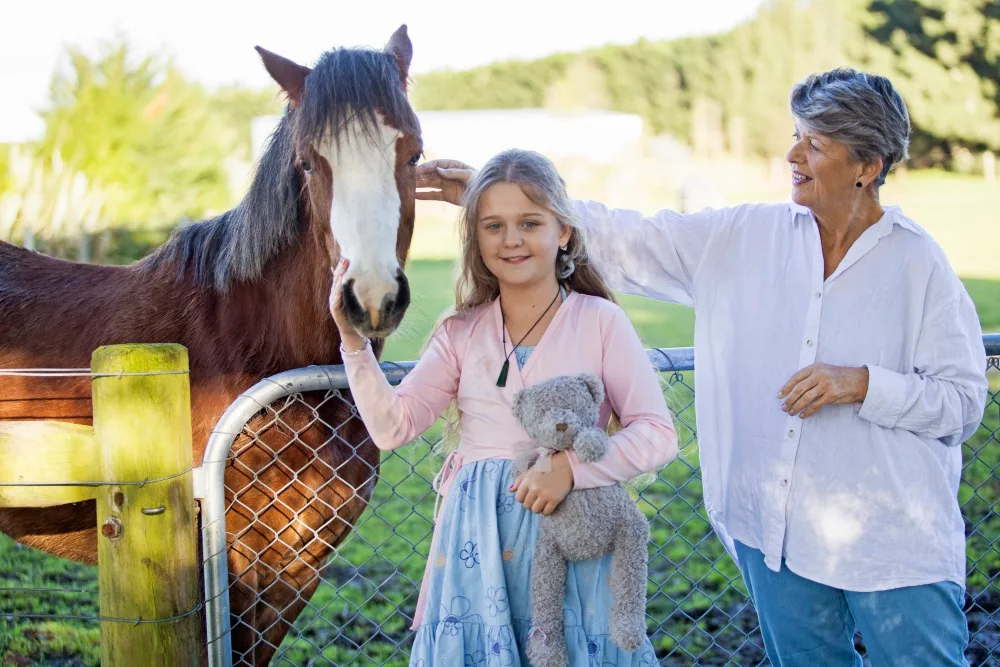
Monroe shares the same passion for horses as her mum.
Reflecting on her own daughter’s childhood in Nelson, Laschelle recalls Emma being a good and nonargumentative kid, despite her tendency to push the barriers as a car- and party-loving teen.
“Emma was a bit of a boy racer, swapping the horses she grew up loving for horse-power,” Laschelle laughs.
“Her first car was a little orange Mini and her last car was a Mini. Up until the end, she was going out dancing and to concerts. It seems so bizarre to think the cancer was lurking there the whole time.”
During their stay at Nurse Maude in Christchurch, the hospice Laschelle credits for their great end-of-life care, loved ones flowed through to visit Emma, who asked her mum to share her story in hope it won’t happen to anyone else.
“The hospice let people in, and Emma’s friends rallied around her from everywhere to say their goodbyes and have a drink of two,” Laschelle says. “It was her last hurrah.”
